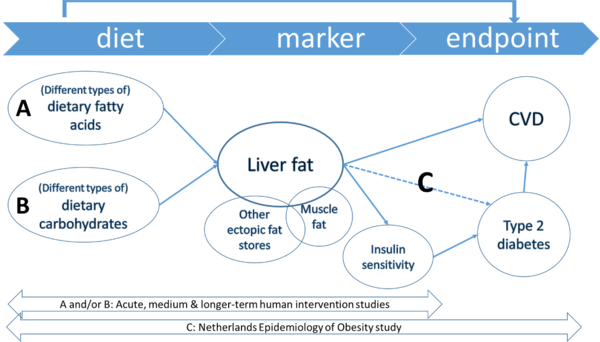Liver fat accumulation and cardiovascular risk: new ways to prevention and treatment
The worldwide increasing prevalence of obesity leads to increased incidence of metabolic diseases such as diabetes and cardiovascular disease. Especially fat accumulation in and around organs, such as the liver, appears associated with disease. What is poorly understood is why fat accumulates in the liver, to what extent and in whom this is a predictor of disease and how diet can influence this. This knowledge gap is, amongst others due to lack of methodologies to study liver metabolism non-invasively in large-scale human studies. It is therefore unknown whether liver fat is a good target to prevent or diminish metabolic diseases.
The current project will combine small-scale human studies of mechanisms and interventions with large-scale population-based longitudinal studies on the health impact of liver fat. Non-invasive imaging techniques will be further adapted to enhance the measurement of the contribution of dietary fat and the formation of lipids from carbohydrates to liver fat accumulation, and how modulation of diet composition may alter liver fat content, and ultimately metabolic health. As a whole, this project will reveal whether liver fat should and can be considered a target for interventions aimed at improving metabolic health in humans.




